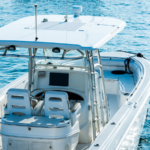Negotiating Settlements vs. Verdicts in Wrongful Death Cases

When deciding between a settlement and a verdict in a Dallas wrongful death case, it’s essential to consult with your attorney. Settlements might offer a sure outcome and timely compensation, but they may also be lower than what could potentially be won in court. While a verdict could yield a higher award, going to trial takes longer, and it comes with the risk of an unpredictable outcome. Therefore, an experienced wrongful death lawyer can help you weigh the odds of success in court against the certainty of a negotiated agreement.
Wrongful Death in Boating and Recreational Accidents

Boating and other activities on the water are generally intended for fun and recreation and an opportunity to relax. Tragically, these activities can sometimes end in fatal boating or recreational accidents. When someone else’s negligence causes the death of a person on the water, it can give rise to a wrongful death claim. Although no amount of money can ever compensate you for the loss of a loved one, a wrongful death claim is a legal way to seek justice for your loved one and compensation for your family’s future.
The Role of Expert Witnesses in Wrongful Death Cases

The people we love are the most valuable thing in our lives. We are never really prepared for the death of a loved one, and our hurt is compounded when the loss is caused by the senseless actions of a careless or violent person. A wrongful death claim provides survivors the resources they need to move on and start rebuilding their lives.
The defendants in a wrongful death lawsuit will go to great lengths to avoid responsibility for the harm they have caused. They will argue that they weren’t responsible for your loss and might even try to destroy or cover up crucial evidence. Attorneys for defendants in a wrongful death case will try to create doubt and confuse the jury.
Texas Survival Claims: What They Are and How They Work

A survival claim is a legal tool that allows the heir or executor of a deceased person’s estate to bring a personal injury lawsuit on behalf of the deceased person. A survival claim aims to seek justice for a deceased accident victim. Although a survival claim is similar to a wrongful death claim, they are not the same.
How Does Loss of Consortium Work in Texas?

When someone is seriously injured through the negligence of another, it may not be only the injured person who suffers a loss. The victim’s spouse, children, parents, and other family members may suffer loss of consortium. This concept can play an essential role in Texas personal injury claims. Understanding the loss of consortium can help you receive fair compensation for your injuries.
When Could I File a Wrongful Death Lawsuit in Texas?
If your loved one was fatally injured under questionable circumstances, you may be wondering whether or not you have a legitimate reason to pursue a Dallas wrongful death lawsuit. Under the law, you would be entitled to damages if you are the statutory beneficiary or someone who was killed by the negligent, reckless or careless actions of another person. In order to be considered a “statutory beneficiary,” you must be the deceased’s spouse, child or parent. It is also important to understand that a wrongful death lawsuit differs from a survival claim, as the Texas Survival Statute states that this type of claim can only be brought by the deceased’s heir or estate representative. They would be able to assert a personal injury claim that the deceased would have been able to assert, had they survived the accident—which could be for damages that include lost wages, medical bills and property damage.
ATV Accident Causes Wrongful Death

On the evening of July 21, 2012, a 22-year-old woman, Kayla Breann Lilley, was killed in an ATV accident in Cameron, West Virginia. The accident happened while she was riding on the back of an all-terrain vehicle that was being driven by 23-year old Casey Hill, near the community of Adaline. 911 dispatchers received a call around 6:30 p.m., and were told that a serious accident involving a male and female rider had taken place. Upon arrival, Chief Deputy Kevin Cecil found that the “ATV had rolled over several times, going about 30 feet over an embankment,” and had subsequently pinned the female victim underneath the heavy vehicle.